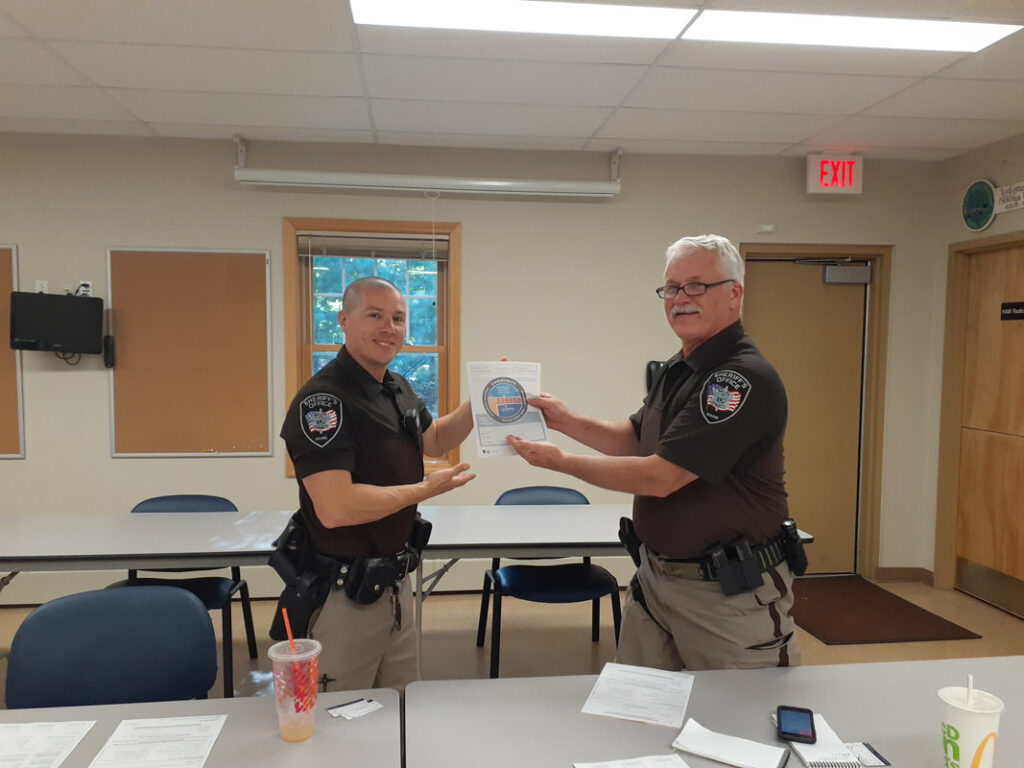
The Restorative Justice Project Maine, in partnership with Health Equity Alliance (HEAL) and the Waldo and Knox County Sheriff’s Departments, would like to share the exciting news that as of October 1st, we are officially kicking off LEAD- a law enforcement diversion pilot program.
The LEAD (Law Enforcement Assisted Diversion) initiative is being managed by RJP Maine’s Community Resolution Program Manager, Sarah Mattox. She was excited to discuss the pilot with RJP Maine’s Communications Coordinator, Jenna Golub, so that the community might better understand this emerging diversion program.
JG: Sarah, you’ve been managing the development of the LEAD initiative for RJP Maine. Congratulations! As of today, October 1st, the Waldo County Sheriff’s patrol division has been oriented and RJP Maine has begun receiving referrals. It sounds like the initiative is off to a solid start. How did this initiative come about?
SM: Thank you! It has definitely been exciting; designing this program has been a good opportunity to build relationships with the Health Equity Alliance and to deepen our commitment to offering restorative opportunities with the support of the Sheriff’s Department. The design phase of this pilot consisted of writing policy and procedure; consulting with the national LEAD Bureau and the Longmont Community Justice Partners in Longmont, Colorado, as well as new Waldo County Community Liaison, Rob Porter; formation of law enforcement Diversion Advisory Committee for both Waldo and Knox counties; and assembling an informational flyer and referral form. The team has included Waldo County RJ Coordinator, Karin Wittmann, and terrific interns Hadriane Hatfield and Amy Frankel. This addition of this law enforcement formal referral stream to our long-standing Community Resolution Program is sponsored by a grant from the Department of Public Safety.
JG: How is this process different from traditional police responses?
SM: Historically, officers have had limited options available to them when they respond to a call for assistance: they can work to provide assistance by diffusing the situation in the moment or they can charge someone, either through summons or arrest. Officers and the public are aware that sometimes these responses are unable to effectively address the root cause of the call – particularly when mental health or substance use are part of the equation or if it’s a matter of long-standing conflict.
JG: Enter LEAD!
SM: Yes! With LEAD, officers are provided a third option: to divert the call to community-based service for attention. This could take the form of either targeted case management (to address unmet needs someone may have in the realms of mental health counseling, recovery support, access to food or housing, etc), or restorative justice, or both – in situations where that is relevant. HEAL and RJP Maine are dedicated to working effectively together so that individuals can get their needs met and, once they are in a position where they are able to engage in facilitated conversation around conflict and harm, that can happen through RJP Maine.
JG: The Waldo County Sheriff’s patrol division has completed their orientation and RJP Maine has already begun to receive referrals. Please speak to the referral process if you would.
SM: It’s pretty simple. Officers have a referral form in their cruiser as well as an informational sheet (see below). They also have the policy and procedure around what instances may be eligible… If they speak with parties involved and the parties are agreeable, then they can send the referral. Restorative processes are built on the understanding that they must be voluntary for all involved.
In the case of the person who has been harmed, they need not agree to participate if they are not interested in doing so. Instead, they might choose to speak with the RJP Maine facilitators to convey their concerns and they could opt to identify a proxy – such as a family member or a friend – to participate on their behalf or they could request that RJP Maine work to identify a surrogate to stand in for them. In this case, it would be someone who had experienced something similar and could speak to the impact upon them. Of course, this is not as direct but can still be very useful.
JG: Very, very exciting. It is also worth noting that RJP Maine will be holding a five session training course beginning October 9th, for our current volunteer mentors and facilitators. Should mentors and facilitators expect focused training on the LEAD initiative?
SM: Waldo and Knox volunteers have been receiving information about this pilot as it has unfolded and we will continue to learn together, along with the community and with officers, about how to offer the most supportive processes possible. We’ll definitely be learning together as we go.
JG: This is an amazing initiative and I’m so excited for the community to learn about it. What do you hope will come of LEAD in the coming months?
SM: In time, our intention is to reach out to other law enforcement agencies in Waldo and Knox Counties to see if they would like to participate, and also to make similar opportunities available in the other counties that RJP Maine serves.
Special thanks to Sarah for her devotion to this project and the time she set aside to speak about it. We know Sarah would be the first to say that RJP Maine is very grateful to our partner organizations and the several devoted individuals who have given so much of their time and brain power to making this pilot program happen. Congrats and thank you to all!
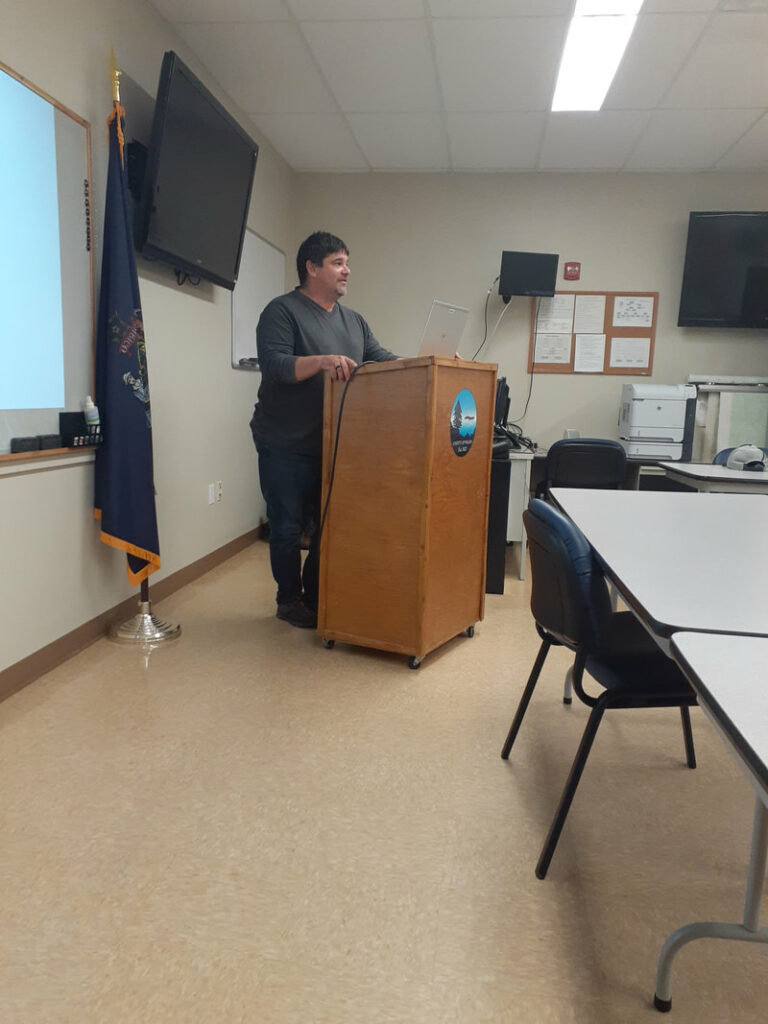
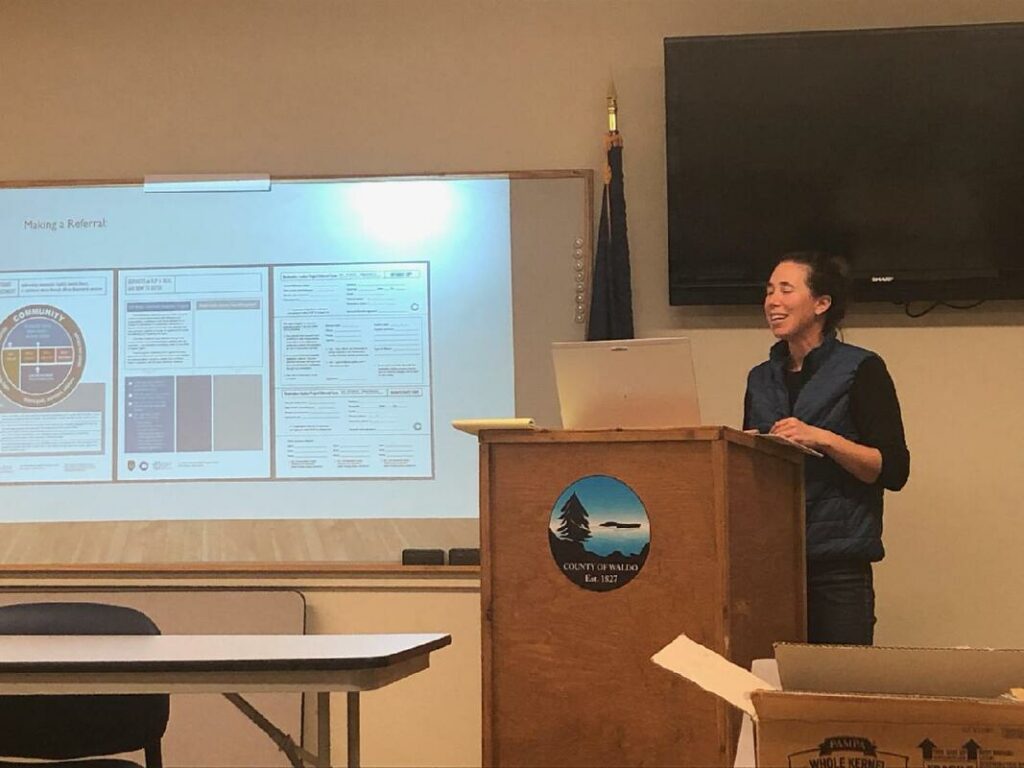
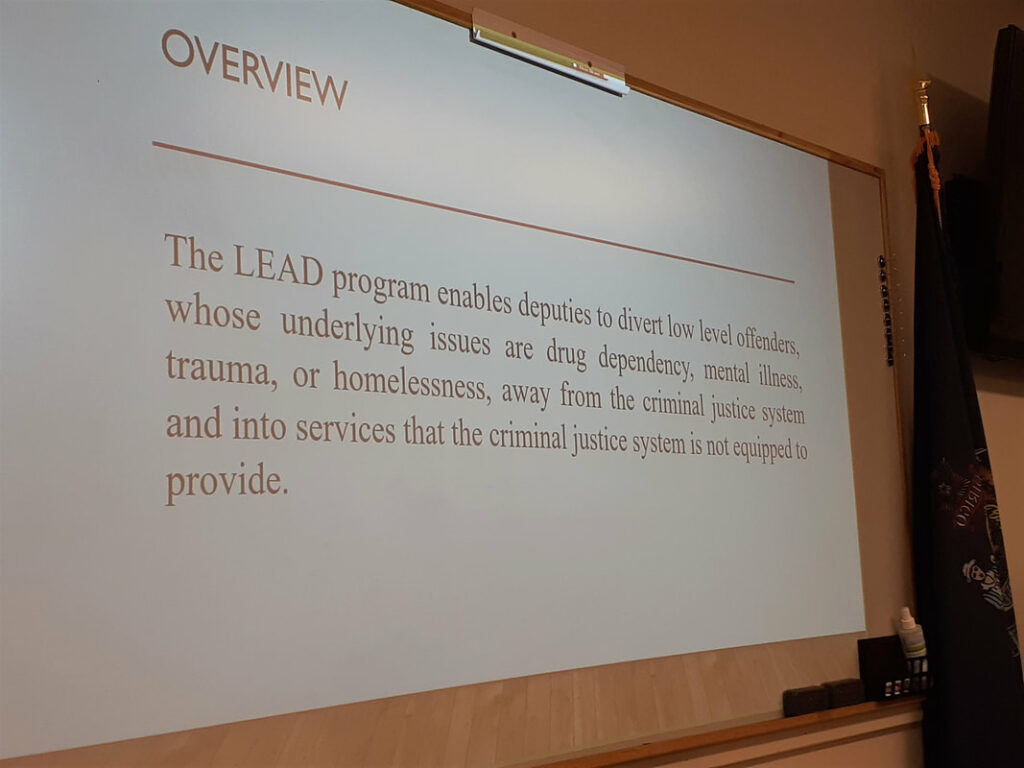
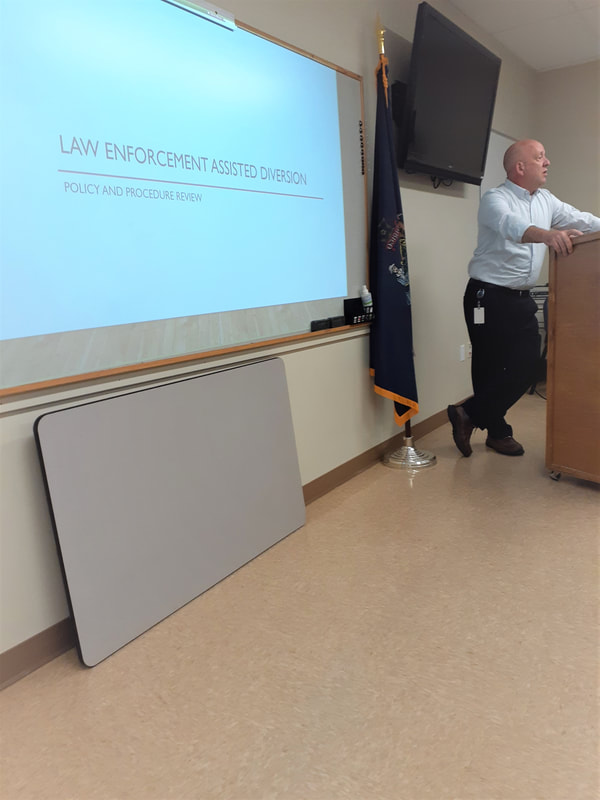
We have handcuffs and guns and maybe some pepper spray but that’s what we’ve got for tools – but many of the calls we receive are about conflict. This pilot is about trying to resolve the issues, at their core, so that it doesn’t continue to circulate or to grow.
Chief Deputy Jason Trundy – Waldo County Sheriff’s Department
